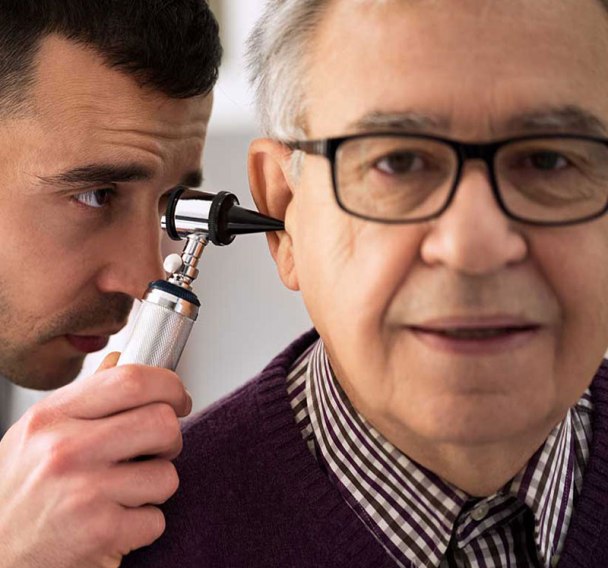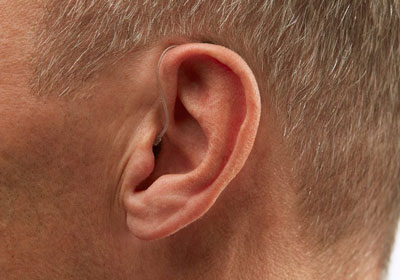
Research shows that untreated hearing loss has troubling consequences that go far beyond simply misunderstanding what someone says. It can contribute to cognitive decline and a diminished quality of life.
It happens so gradually that many people don’t realize at first what they’ve lost. Voices on the phone begin to sound muffled. Conversations in crowded places become harder to hear. Even with the volume turned up, the television isn’t loud enough.

“By the time people come in for a hearing test, they often have significant Hearing Loss,” says Lee Akst, M.D., director of the Johns Hopkins Voice Center and assistant professor of medicine at Johns Hopkins University School of Medicine in Baltimore.
What noise does to us:
One in three Americans ages 50 to 59 suffers from hearing loss, according to a 2011 study in the Archives of Internal Medicine. The number climbs to almost 45 percent for people 60 to 69, and it continues to rise. By the time we reach our 80s, nearly nine in 10 of us will have trouble hearing. The most common cause of hearing problems is from age-related hearing loss, called presbycusis, which affects both ears and often runs in families. But a lifetime of exposure to loud sounds can also contribute to hearing loss. Most older adults have progressive hearing loss related to a combination of aging and exposure to noise.
Most people with presbycusis first lose the ability to distinguish high-frequency sounds, such as “S,” “F” and “TH,” which are major components of speech and language. Difficulty hearing high-frequency sounds makes it hard to understand the high-pitched voices of women and children. Tinnitus, or ringing in the ears, can accompany presbycusis.
Unfortunately, most people suffer in silence. According to the American Speech Language Hearing Association, only 20 percent of people who might benefit from treatment seek help for hearing loss. And while presbycusis has no cure, technological advances have made hearing aids and other assistive devices more helpful than ever. Yet, a 2012 Johns Hopkins study found that only one in seven people 50 and older who would benefit from a hearing aid were using one.
Consequences of hearing loss
You may be aware of the more obvious consequences of poor hearing—not being able to hear alarms, phones, doorbells or car horns or understand what’s being said to you—but hearing loss can have profound effects on other areas of your health and on relationships. Hearing loss is associated with an increased risk of:
■ Mental decline and dementia. A 2013 study led by Johns Hopkins researchers found that older adults with impaired hearing had 30 to 40 percent steeper declines in cognitive function than those with normal hearing.
“Findings like these make intuitive sense,” Akst says. “Being able to hear and converse, to exchange information and ideas, keeps us mentally challenged, especially as we age. When we lose the ability to hear normally, our brains are no longer being challenged in the same way.”
■ Social isolation and depression. Hearing is an essential part of social inter- action: We confide our feelings to our loved ones and converse with friends over dinner. When you begin to have trouble hearing, you may avoid socializing at noisy restaurants or crowded events. Isolation, in turn, may lead to depression and anxiety. A 1999 survey by the National Council on Aging was one of the first reports to find a link between hearing loss and depression, anxiety and paranoia.
■ Balance. If you have uncorrected hearing loss, you stand a threefold increased risk of falling compared with people who have normal hearing. In a 2012 Hopkins-led study, researchers theorized that people with hearing loss may have inner-ear problems that affect equilibrium; a limited awareness of their surroundings, which makes tripping or falling more likely; or too much demand on their cognitive function that’s already limited due to hearing impairment.
■ Gait speed. Hearing loss is associated with a slower walking speed. If you have hearing loss, your pace will match that of someone who’s 12 and a half years older than you who doesn’t have impaired hearing, according to a 2013 Hopkins study. An equilibrium problem or the conflicting demands on your cognitive function may affect walking speed as they do balance.
■ Quality of life. Added together, the consequences of age-related hearing loss can have a significant negative impact on your quality of life. In a 2013 study in Clinical Interventions in Aging, Italian researchers reviewed 50 studies linking hearing loss to measures of social, material, physical and emotional well-being. They found that only 39 percent of people with hearing loss rated their quality of life as excellent, compared with 68 percent who had normal hearing.
■ Your loved ones’ quality of life. Being hard of hearing doesn’t affect only you; it does collateral damage to the people close to you, such as your spouse or partner, family members and caregivers. Hopkins researchers reported in the February 2015 issue of the Journal of the American Academy of Audiology that, overall, close loved ones of people who are hard of hearing experienced a restricted social life, an increased communication burden, a decreased quality of life and an unsatisfactory relationship.
The researchers found the burden may be especially hard on the spouse of the hearing-impaired individual and puts a strain on a couple’s relationship. However, they found that the partner’s quality of life, relationship satisfaction, communication and social functioning improved once the hearing loss was treated.
Better hearing aids
Although doctors can’t restore normal hearing, technological innovations have led to a new generation of hearing aids and cochlear implants that are more effective than ever. And there’s growing evidence that Hearing Aids can prevent some of the most troubling consequences of hearing loss. In a 2013 paper, researchers at Johns Hopkins found that people with hearing loss who used hearing aids were significantly less likely to experience depression than those without aids.

A French study published last October in the Journal of the American Geriatrics Society found that self-reported hearing loss was associated with a steady decline in cognitive ability—unless people used hearing aids. Cognitive scores for people using hearing aids were equal to those with no reported hearing loss.
Our advice
If you’re finding it harder to hear lately, visit your primary care doctor or an otolaryngologist (an ear, nose and throat doctor) to rule out an underlying cause of hearing decline. Chronic diseases that affect blood supply, such as high blood pressure, coronary heart disease and diabetes, can cause presbycusis, as can certain drugs such as diuretics, chemotherapy agents and aspirin in high doses. An ear infection can also cause hearing impairment but, in such a case, hearing difficulty usually comes on more suddenly than presbycusis does.
Your doctor may refer you to a qualified audiologist who can test your hearing and recommend hearing aids precisely matched to your hearing loss. “Hearing aids aren’t a perfect solution,” Akst says. “People usually need time to get used to using them. But they can make a significant difference in the quality of life for individuals with hearing impairment.”















